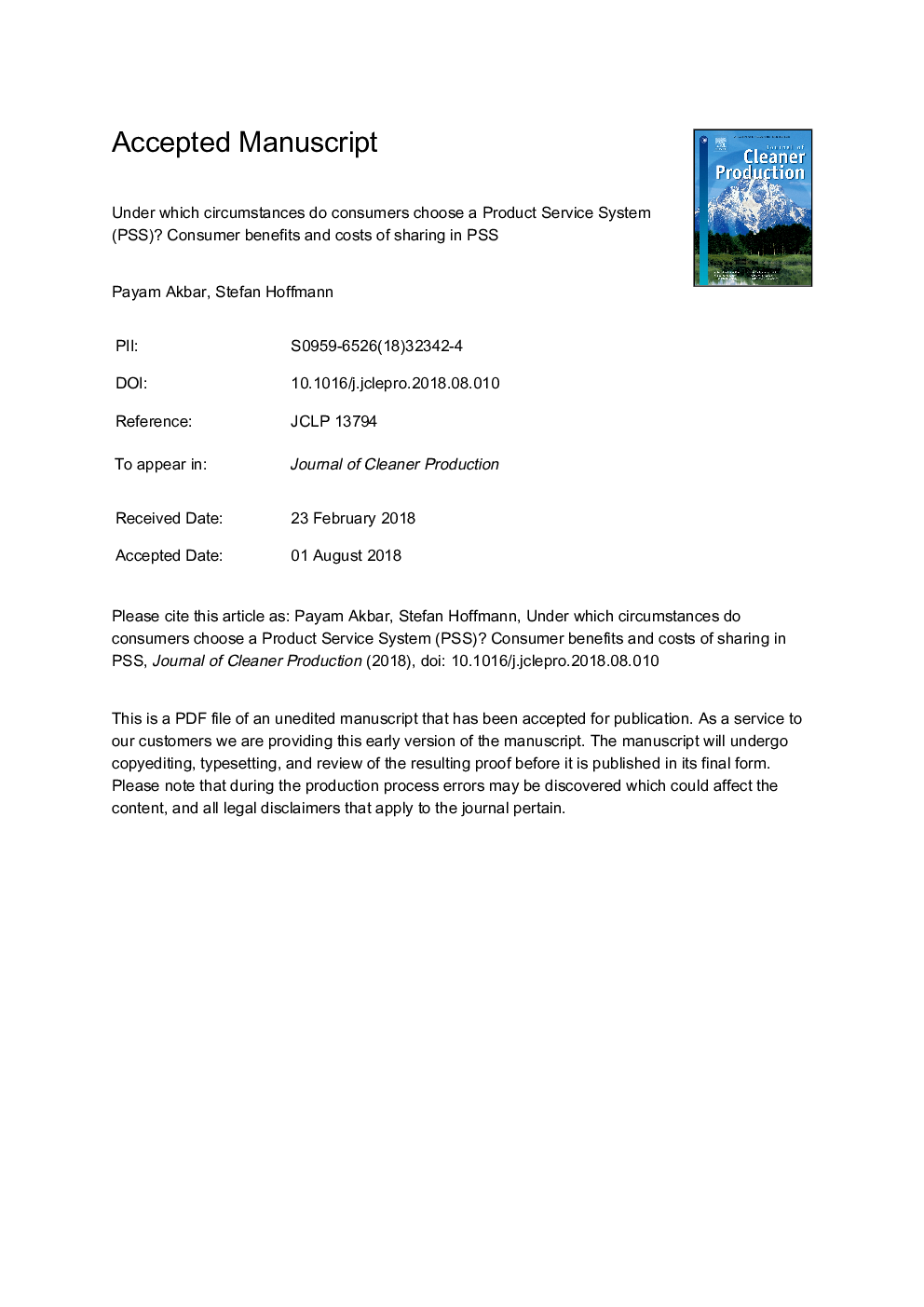| Article ID | Journal | Published Year | Pages | File Type |
|---|---|---|---|---|
| 8092747 | Journal of Cleaner Production | 2018 | 37 Pages |
Abstract
Product sharing through product service systems (PSS) give consumers the opportunity to use products without owning them. The diffusion and adoption of PSSs can potentially reduce the consumption's negative external effects on the environment by moving society in the direction of a resource-efficient economy. However, PSS research has yet to provide a framework for understanding why consumers choose a PSS. The authors conceptualize the consumer's choice of a PSS sharing offer based on a cost-benefit analysis. A regression analytic approach confirms this model in the business-to-consumer-context (B2C), thereby demonstrating that the emotional costs related to a perceived stockout risk decrease the intention of consumers to choose a PSS. For the first time, it is shown that -especially consumers who have a strong environmental consciousness - are willing to bear the emotional costs and choose a PSS. Furthermore, it is shown that non-monetary intangible benefits drive consumers to choose a PSS sharing offer, including the socializing aspect of sharing and the convenience of non-ownership. The authors derive implications for practice and further research.
Related Topics
Physical Sciences and Engineering
Energy
Renewable Energy, Sustainability and the Environment
Authors
Payam Akbar, Stefan Hoffmann,
